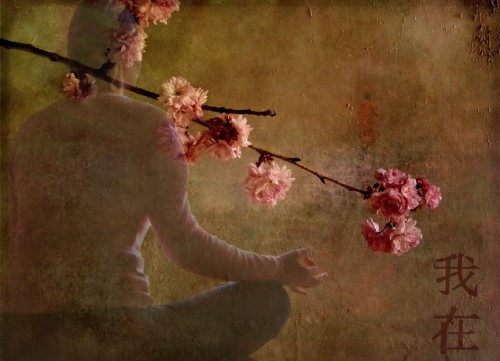Metta (met-tah) is Pali for goodwill and friendliness.
Metta is related to the word mita or friend. In Sanskrit it is maitri (my-tree) often translated as,
“the unconditional friendship or acceptance with oneself; a loving-kindness towards oneself and, as a result, towards others.”
The place to start is with oneself.
In the American culture of today, starting with oneself is often construed as selfishness.
In 1993, several well established American Buddhist teachers met with His Holiness the Dali Lama. He asked what the most difficult problem was for their students. Unanimously, they spoke about how difficult it is for Americans to like themselves, to be friendly towards themselves.
It took a great deal of back and forth for the Dali Lama to understand this. In the Tibetan culture, this concept does not exist, at all.
I suspect it is based on our Puritan roots.
One of the teachers at this conference, Jack Kornfield, instructed some of his students to practice a year of metta. This idea floated in and out of my field of vision for some time.
I had been reading The Body Keeps Score by Bessel Van Der Kolk, MD. In this book, he discusses how during trauma, the fight or flight part of the brain takes over while other parts shut down.
One center that is inhibited is the creativity and imagination part of the brain. He found that the shutting down of creativity and imagination continues well beyond the episode(s) of trauma. It can be life long and in some way quite debilitating.
Last fall, I had entered into a non-residency writing program and had a coach. What I found was that I could not push through the “writer’s block” that so many people talk about.
I began to think that I really wasn’t cut out to write, but the coach assured me I had what it took. At the time, I didn’t understand why I was having so much difficulty. The coach attributed it to being a new writer needing support and daily active writing, and though I agreed with this, I felt like something more was going on, but I could not explain it.
When I read the book, I finally understood the source of my wall (forget block).
So many things happened in my childhood. If healing and loving-kindness start “at home,” and if loving-kindness for myself and others leads to happiness and to unleashing the creative-imagination part of my brain, then why not try a “Year of Metta.”
(Of course as I have learned, a “Year of Metta,” is really a lifetime of metta, but I had to start with a small bite or it would be too overwhelming.)
What constitutes metta? What is my definition? What is the Buddhist definition? Where would I start? What do I do?
I was still asking these questions when I attended a hiking-yoga-meditation retreat with Kay Peterson in Colorado during the summer of 2015. The exercise, the location and the openness for reflection, gave me the time to not think, but to listen.
To listen to the wisdom already inside me.
I returned home and rededicated myself to meditation, in all forms, or as many as I could educate myself about, and as it turns out, non-meditation as well.
I chose October 1st, 2015, my birthday month, as my start date. I began collecting ideas and tools that my teachers recommended.
I began collecting articles and books on compassion and loving-kindness. I reviewed the meditation practice of lojong and metta, smile yoga and sitting with my uncomfortable thoughts and emotions.
I began a folder on my computer intending to write about my experiences and topics such as, aggression, duality and equanimity, the Eight Worldly Dharmas, and others as they related to loving-kindness.
I looked for meditation retreats that focused on this topic and I re-found Pema Chodron’s book, No Time To Lose, a lay person’s discussion about The Path of the Bodhichitta (awakened heart).
I don’t know Jack Kornfield, and I have not had the opportunity to attend one of his retreats, but I thought that now is the time for a year’s practice of metta.
There is “no time to lose.”
Relephant:
Metta: The Practice of Loving Kindness.
~
Author: Amanda Ryden
Apprentice Editor: Brandie Smith/Editor: Travis May
Photo: Hartwig HKD/Flickr





Read 1 comment and reply